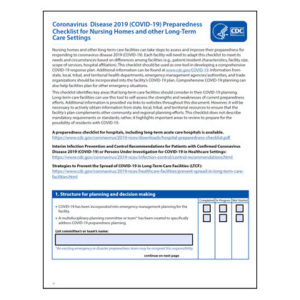AMDA member to lead national trial aimed at antibiotic reduction
In an effort to reduce the unnecessary use of antibiotics in post-acute and long-term care facilities (PALTC), the University of Pittsburgh School of Medicine's David Nace, MD, is conducting a $1.5 million, three-year national trial to investigate antibiotic guidelines. Nace is also a member of The Society for Post-Acute and Long-Term Care (AMDA).
Nace and his team will investigate antibiotic guidelines and tools that can help PALTC facilities better manage illnesses that are commonly misdiagnosed and incorrectly treated.
"Antimicrobial resistance is a hot button issue in health care nationally and internationally – and improper overutilization of antibiotics is the single largest culprit," said Nace in an AMDA press release (PDF). "It is critically important that we find ways to cut unnecessary use of antibiotics."
AMDA reports the leading reason for antibiotic use at PALTC facilities is to treat urinary tract infections (UTIs). Antibiotic use starts before a correct diagnosis is made, and as many as two-thirds of those cases turns out to be something other than a UTI. When antibiotics are used incorrectly, they kill good bacteria and allow drug-resistant bacteria to infest the body.
Nace will be joined by co-investigators AMDA and Christopher Crnich, MD, a University of Wisconsin associate professor of medicine and antimicrobial stewardship expert. The trial is funded by the U.S. Department of Health and Human Services Agency for Healthcare Research and Quality (AHRQ).
Read more about the trial on the University of Pittsburgh School of Medicine's website.
Related articles:
Study: Even residents not taking antibiotics experience drug-resistance effects

Megan Combs was Associate Editor of I Advance Senior Care / Long Term Living from 2013-2018.
Related Articles
Topics: Clinical











